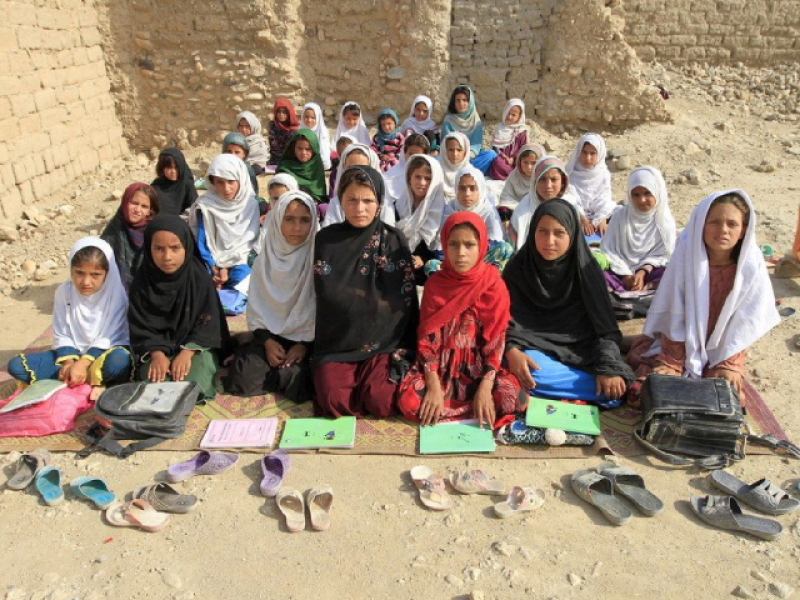
Taliban rulers have decided not to allow girls in sixth grade and higher to attend school, breaking a promise they made that implied that their leadership was becoming more progressive.
When Afghanistan opened its school doors following the winter break on Wednesday, girls in grade seven to 12 were not allowed to go back to getting an education. The Taliban announced that they have decided against allowing girls to attend classes as they needed more time to come up with a plan that is in line with Sharia or Islamic law.
"We inform all girls' high schools and those schools that are having female students above class six that they are off until the next directive," the Taliban notice read, as per VOA News. The move not only broke the hearts of young girls in Afghanistan who wished to get an education to improve their quality of life, but also drew ire from domestic and international critics of the Islamic group, which backtracked on their commitment that all girls across the country would be allowed to go back to school beginning March 23.
The last minute amendment to a previous Taliban directive left many female students upset in the capital of Kabul, where they arrived in school excited to return to class only to find out that they were being sent home. An unnamed female student admitted they were "disappointed" and "totally hopeless" after being told they were not allowed to go to school.
U.S. special envoy for Afghanistan Thomas West urged the Taliban leaders to go back to their commitment late last year that said they would allow females to get an education. He took to Twitter to express "shock and deep disappointment" with the Taliban's new decision.
"This is a betrayal of public commitments to the Afghan people and the international community," West said, underscoring that education is a fundamental right of all human beings. He added that it was "essential" to the economic growth and stability of Afghanistan, which under the Taliban had plunged deeper into poverty.
The Taliban also drew criticism from others abroad, including London-based Afghan politician and journalist Shukria Barakzai, Al Jazeera reported. Barakzai commented that the decision "shows that Taliban are not reliable and cannot fulfill their promises...It shows that the Taliban is exactly the same as before - they are against girls' education."
According to AP News, the decision was so sudden that even the Education Ministry was caught off guard. Meanwhile, the Norwegian Refugee Council, which contributes up to $20 million annually for primary education in Afghanistan, was awaiting final instructions from the Taliban about the cancellation of classes for girls above the sixth grade. The council's advocacy manager Berenice Van Dan Driessche said that they had not received any notice of change as of Wednesday night and that girls in 11 provinces where they work had gone to school but were sent back home.
Afghanistan's Education Ministry said that they are now plagued with a shortage of teachers following the withdrawal of U.S. troops in August 2021. Many teachers were among the thousands who fled Afghanistan when the country fell under Taliban rule after the West-backed government of President Ashraf Ghani fell.
A Taliban representative said, "We need thousands of teachers and to solve this problem we are trying to hire new teachers on a temporary basis."

















